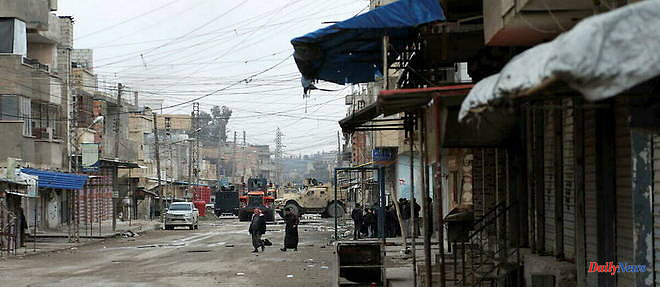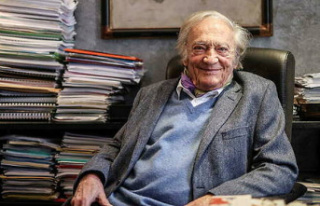Three digits, a dash and four more digits. Investigators from CAR (Conflict Armament Research), a British NGO that documents the proliferation of arms around the world, have made an enlightening discovery in Syria. Many weapons used in attacks on the Al-Sinaa prison in Hassaké, where more than 5,000 jihadists are locked up, are said to come from the stocks of Islamist militiamen trained by Turkey. This is what concludes a report submitted by the NGO in January after a long field investigation.
The prison, the main detention center for Daesh militants in Syria, has been the scene of numerous mutinies and escape attempts in recent years. Security there is precarious. On January 20, 2022, jihadists attacked the main gate with a car bomb and attempted to free hundreds of prisoners. Heavy fighting around the prison left nearly 500 people dead and the entire Geweiran neighborhood in Hassakeh was placed under curfew for two weeks. A year later, the city has still not recovered. The Syrian Democratic Forces (SDF) supported by the special forces of the member countries of the international coalition, mainly American, dismantled sleeper cells of Daesh, which were preparing, again, to take action.
“With each seizure of material, CAR was able to observe weapons bearing a second distinctive mark. This mark appears on a large sample of equipment – nine weapons such as machine guns or a rocket launcher – and shows that these weapons shared a common supplier,” the report said. "CAR's analysis strongly suggests that these markings indicate that these nine weapons were all, at one time, in the possession of the Syrian National Army (SNA). The ANS is a coalition of Islamist battalions and Syrian mercenaries, sometimes from jihadist groups, who are trained, armed and used by Turkey, including the private military company SADAT, the "Turkish Wagner".
A resurgence of attacks has rocked the territory of northeastern Syria in recent months. Throughout the region, a resurgence of Daesh is feared. The Syrian Democratic Forces and their Western allies launched an operation called Martyrs of Raqqa in January to dismantle sleeper cells present in Raqqa, Hassaké or Al-Hol, near the camp where more than 50,000 men are detained, women and children, including many families of jihadists.












